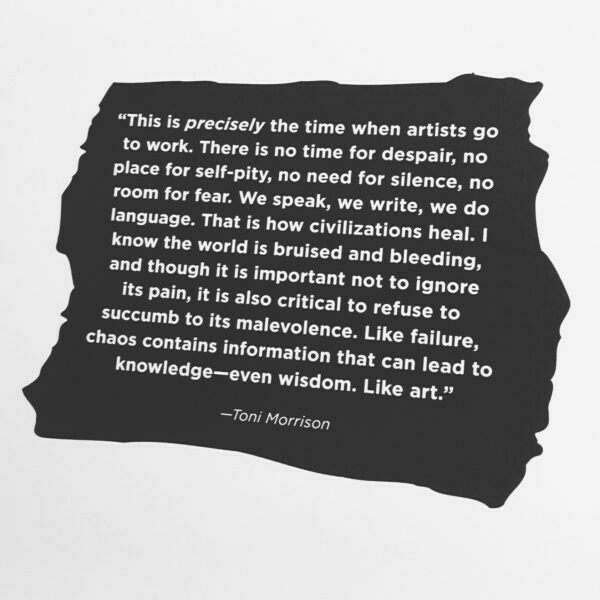
There's an interesting juxtaposition between
- Toni Morrison's "chaos contains...wisdom" idea of growth in despair
AND - Gerard Manley Hopkins poetic line, "Wisdom is early to despair."
Hopkins line comes from his poem "The Leaden Echo And The Golden Echo." In which, he seems to borrow heavily from the Hebrew poet Qohelet, who says this about his work of philosophizing and writing (making art you might say):
So I turned about and gave my heart up to despair over all the toil of my labors under the sun.
We have to recognize that this very act of Qohelet writing his despair is artful. As a product of his salty lament, a book was birthed titled Ecclesiastes.
Toni Morrison, of course, had a very different lived experience from Hopkins (white, Victorian, priest (SJ)) and Qohelet (10th or 3rd C BCE, Hebrew, poet)1 for that matter. And yet, her case for finding wisdom in the midst of despair, harmonizes with the poetic tradition of lament.
Morrison seems to possess a righteous anger that keeps her from strict despair. Instead, she is thrust into lament—dispair with a vocabulary; hurt articulate in wail, "We do language." She gives voice to a primeval wisdom that speaks despair in the midst of chaos and rises on wings of hope into lament that sings. Wisdom rejoices in lament.
The ancient literature of Proverbs tells the story of wisdom in the midst of primordial chaos, in the beginning, at the birth of the world. Here Hokma is personified as the creator's first offspring. Like a protege marveling in the virtuosity of her master teacher, lady wisdom "rejoices" in the work!.
Prov 8, selected: 2
The Lord fathered/created (LXX) me at the beginning of his work the first of his acts of old...When he established the heavens, I was there; when he drew a circle on the face of the deep, when he made firm the skies above...when he assigned to the sea its limit, so that the waters might not transgress his command...then I was beside him, like a master workman, and I was daily his delight, rejoicing before him always, rejoicing in his inhabited world, and delighting in the children of man.
Here is a charge for the artists who weep for injustice and cry for the mercy of justice: In lament and despair, love beauty, make beauty, live and eventually die for beauty.
Like Neil Gaiman says:
I'm serious. Husband runs off with a politician? Make good art. Leg crushed and then eaten by mutated boa constrictor? Make good art. IRS on your trail? Make good art. Cat exploded? Make good art. Somebody on the Internet thinks what you do is stupid or evil or it's all been done before? Make good art. Probably things will work out somehow, and eventually time will take the sting away, but that doesn't matter. Do what only you do best. Make good art.